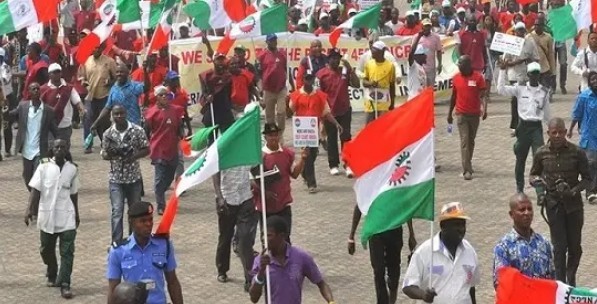News
NLC Tells Nigerians To Stock Homes With Food, Medicines Ahead Of Nationwide Strike
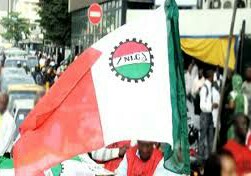
The Federal Government will on Monday meet with the representatives of the organised labour in an effort to prevent the nationwide strike called by the Nigeria Labour Congress.
However, the NLC has advised citizens to stock their homes with food items, medicines and other essential things ahead of the commencement of its seven-day strike to protest the removal of fuel subsidies and the escalating cost of living in the country.
The warning, it noted, had become necessary because the strike would cripple the country as movement would be severely curtailed as commercial transport operators would withdraw their services, while markets, schools and healthcare facilities would be forced to shut down.
The Assistant General Secretary, NLC, Chris Onyeka, said in an interview with one of our correspondents that the citizens should also minimise their movements so as to avoid being stranded.
Sunday PUNCH reports that the NLC had given the government a seven-day ultimatum with threats of a nationwide strike scheduled to commence on Wednesday, August 2, 2023. The labour movement in a statement signed by its National President, Joe Ajaero, accused the Tinubu-led Federal Government of failing to meet up with the demands it presented to it following the removal of the subsidy on Premium Motor Spirit, popularly known as petrol, which caused an astronomical rise in the pump price of the commodity.
Following the announcement of the strike by the NLC, the government team immediately called for an emergency meeting with the organised labour comprising the NLC and Trade Union Congress with a follow-up meeting on Friday at the State House.
The National Executive Council of the NLC had on Friday endorsed the August 2 nationwide strike and mass protests proposed by the body over the recent hike in the pump price of petrol.
However, the Federal Government had told the NLC that it was legally restrained from embarking on the planned nationwide strike due to the ruling of the National Industrial Court, which restrained organised labour from embarking on the strike.
The steering committee members met the government delegation on Wednesday, where the two parties agreed to reconvene on Friday to get a brief from the government’s subcommittees on mass transit, compressed natural gas and cash transfer.
The steering committee was set up by the Federal Government to draw up intervention plans to cushion the effects of fuel subsidy removal on Nigerians.
Tinubu’s palliatives
The Senate Leader, Opeyemi Bamidele, has assured Nigerians that the Federal Government will soon roll out social investment programmes to alleviate the sufferings of the masses, especially the poorest of the poor in the country in view of the removal of subsidy on fuel.
He said at a programme to mark his 60th birthday in Ado Ekiti on Saturday, “The Federal Government will put palliatives in place to help the poorest of the poor. There is also another category of palliatives that will be rolled out for civil servants apart from the promised salary increment that will be done across states and at the federal level.
“The subsidy removal is very significant because the Federal Government will be able to save a lot of money to do infrastructure and make all Nigerians happy. That was the intention of President Tinubu about the removal. He knows what Nigerians are passing through and efforts are underway to cushion the effects of this removal.”
CSOs, lawyers react
However, the Executive Director of YIAGA Africa, Samson Itodo, urged the NLC to engage the Federal Government in negotiations.
“It is quite a difficult situation. Honestly, what will be the pros and cons of embarking on the strike action? They should negotiate more because who is suffering at the end of the day? It’s Nigerians who will suffer. I understand that the NLC is defending the people’s rights and the entire people in society because of the hardship of the policy. The government, on its own part, needs to accelerate its response,” he said.
On his part, the South-South Coordinator, United Action for Democracy, Enefaa Georgewill, stated that the strike was long overdue.
“We agree with the Nigeria Labour Congress and this (strike) is long overdue although the NLC is equally suffering from the issue of trust. We feel that they have been used to behead the popular uprising. We don’t even trust that before the proposed date, the NLC will not come up with a story that they are calling off the strike because they want to go to negotiation,” he said.
A Senior Advocate of Nigeria, Afam Osigwe, warned the NLC against disobeying any substantive court order on the issue of strike, describing such as a contempt of court. He, however, said despite the difficult economic situation, Nigerians should keep hope alive as the challenges would soon fizzle out.
Dafinone gave the advice on Saturday during a reception held in honour of federal lawmakers of Urhobo extraction in the 10th National Assembly organised by the Urhobo Leadership Forum in Abuja.
Other lawmakers honoured were. Rev. Francis Ejiroghene Waive representing Udu, Ughelli North and Ughelli South federal constituencies; daughter of James Ibori, a former governor of Delta State, Mrs Erhiatake Ibori-Suenu, who represents the Ethiope Federal Constituency; and Benedict Etanabene, representing Okpe/Sapele/Uvwie Federal Constituency.
Dafinone described fuel subsidy as a necessary evil, which required clinical amputation to save the nation from the brink of a full-blown economic collapse.
He said, “At this point, the government is putting together policies to ameliorate the situation. But Nigerians must be aware that the next one or two months will be difficult, because petrol price may still go up again, and we must be ready to spend wisely in an economy that will get worse before it gets better. So, I ask you here to also recognise that it may get worse still, and that belts must be tightened in preparation for what may be difficult four to six months before recovery commences.”
According to him, the criticisms trailing the removal of fuel subsidy by Tinubu are not fair, adding that all political parties agreed during campaigns that subsidy had to go.
Gusau said 30 vans were also provided for farmers, particularly those residing in Maiduguri, to enjoy free rides to the outskirts of the state capital where their farmlands are located.
A University of Maiduguri student, Mustapha Abdullahi, and a government worker, Ali Modu, who patronised the buses picking passengers at N50 per drop, lauded the government for the intervention.
In Adamawa, the state government constituted a special committee on mitigating the effects of subsidy removal with Dr Amos Edgar, the Chief of Staff to Governor Ahmadu Fintiri as chairman, revealing plans by the state government to purchase shuttle buses for workers for inter-local government commuting at subsidised rates.
He said another measure being taken by the government was the approval of N10,000 monthly subsidy for all workers and pensioners.
The Director, Transport, Adamawa Ministry of Transport, Mr Labaran Salisu, said some of the 250 partially leased vehicles in the ministry’s custody for inter-state services would be deployed for town services at subsidised rates.
In Yobe, the Executive Secretary of the State Emergency Management Agency, Dr Mohammed Goje, said plans were underway to provide free transportation of students and civil servants.
He said top officials were finalising the state palliative plan in line with the directives of Adeleke.
In Ekiti, a CSO member, Mr Gbenga Ilori, urged the government to strive to revive its moribund transport company, Ekiti Kete Transport Company. He also called on the Federal Government to evolve a programme to help states in this direction in order to cushion the effects of the removal of fuel subsidy on Nigerians, describing the hardship the subsidy removal had caused the masses as unprecedented, saying something drastic needed to be done to alleviate it.
According to him, many residents, especially workers, are finding things difficult as they now spend more to commute to their work places than what they earn, while many others have resorted to trekking long distances.
An engineer with the state Ministry of works, Mr Fatai Alaba, suggested the adoption of alternatives to fuel-powered vehicles.
“The Federal Government can import or make gas-powered vehicles for Nigerians to cushion the hardship on the people,” he said. (Punch)
-

 News3 days ago
News3 days agoFG increases workers salary
-
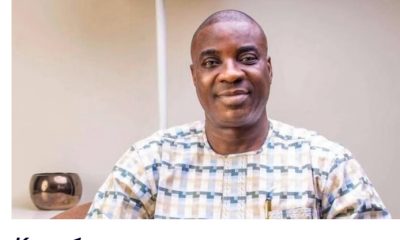
 Politics2 days ago
Politics2 days agoWasiu Ayinde’s Daughter Gets Political Appointment
-

 Gists5 days ago
Gists5 days agoNigeria Ranked 6th With Largest Pen!s Size Globally (Full List)
-

 Education5 days ago
Education5 days agoJAMB releases 2024 UTME results ( See How To Check)
-
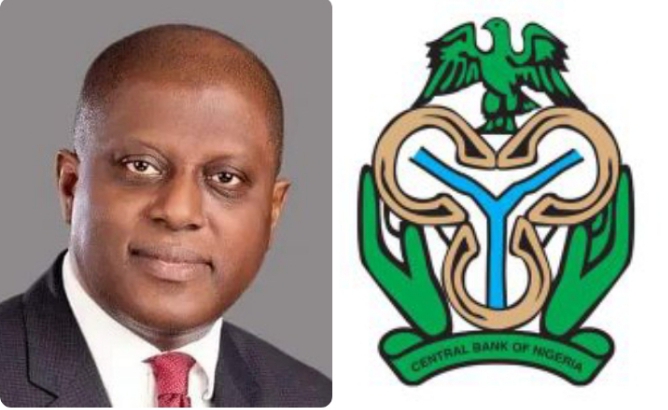
 Business4 days ago
Business4 days agoCBN Sends Warning Message To OPay, Palmpay, Others Over Customers Accounts
-
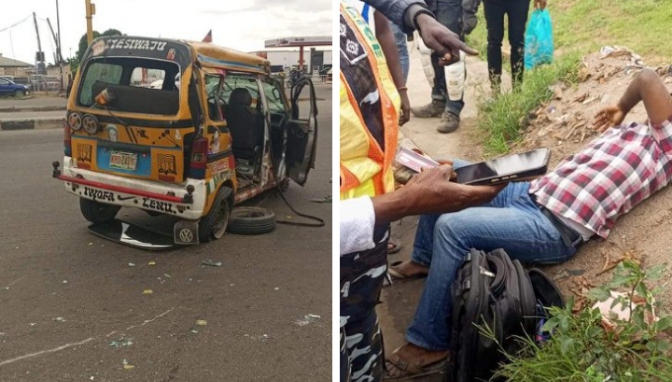
 Metro/Crime6 days ago
Metro/Crime6 days agoFashion Designer, Okada Rider Die In Osogbo Auto Crash
-

 Business5 days ago
Business5 days agoLatest Dollar To Naira Exchange Rate Today
-

 Politics6 days ago
Politics6 days agoTinubu to reshuffle cabinet, as some ministers marked for replacement


